Israel Trips for Seniors
Thinking about making a trip to Israel, if you’re a senior traveller, is always an exciting prospect but it can be a bit daunting. This is especially true if you haven’t visited the Holy Land before - and it’s understandable that you’ll have a fair few questions before you make the decision to book a tour of Israel for seniors.
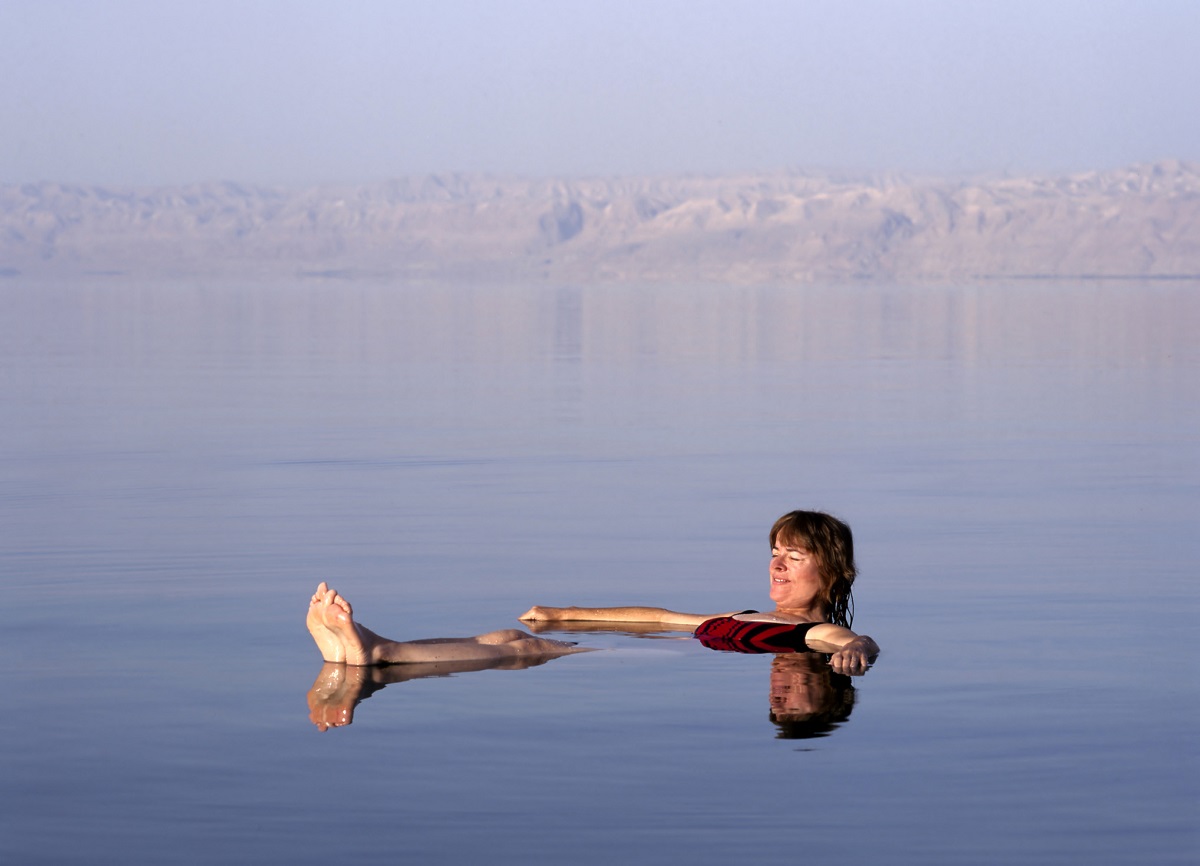
Tourist floating in the Dead Sea. Photo credit: © Shutterstock
The good news is that it’s a fantastic country to visit if you’re a little older than the average visitor - it has wonderful, clement weather for many months of the year, a health care system that’s the envy of the world and well-developed infrastructure, including excellent, reliable and cheap public transport.
Even better, English is widely spoken throughout the country (and quite a bit of French and Russian too!) which is very reassuring for those who worry about language barriers. All signs on the road are written in Hebrew, Arabic and English and almost every street vendor, restaurant waitress or taxi driver will be able to chat to you - not to mention younger people (who’ve often travelled abroad after their compulsory military service, and speak English fluently).
All this aside, as a travel company that’s been in business since the 1990s, we understand that people can sometimes be a little nervous about travelling to this part of the world - and not just regarding the political situation but also because it’s the ‘Middle East’.
Here, we’re going to look at some of the questions older travellers sometimes want answers to before they decide to take the plunge and head in our direction. We’ve also thrown in a few helpful tips and general information that we hope will help in your decision-making. Here we go:
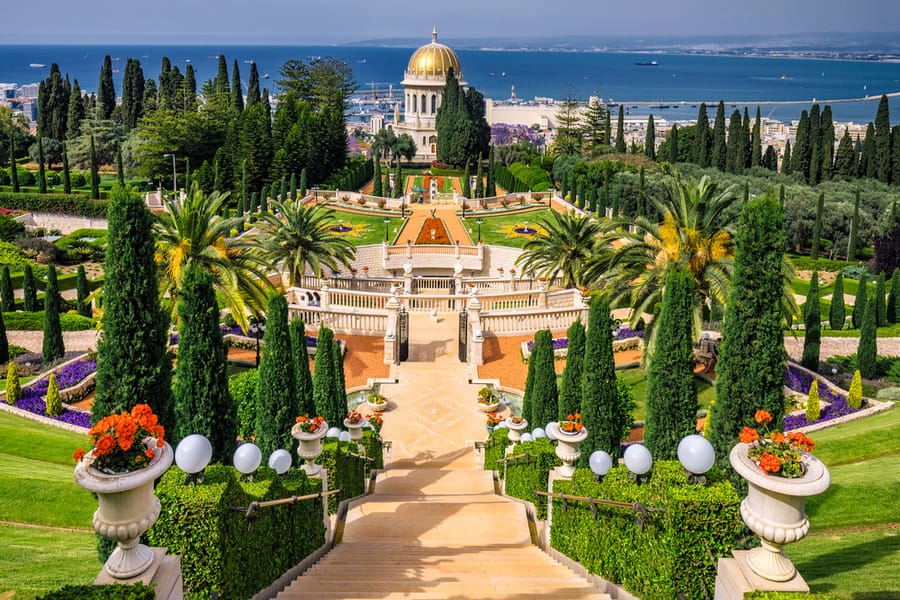
Bahai Gardens, Haifa. Photo credit: © Shutterstock
What Should I Pack For My Trip to Israel?
1. Start off with an electric adaptor and voltage converter. Israel runs on 230 volts at 50 hertz, and the US runs on 120v. You can easily pick these up online, in a local hardware store in your own country or, of course, when you arrive in Israel (they are widely available in malls, pharmacies and local convenience stores).
If you’re coming from Europe, it might be that you can use the sockets available - note, however, that the power prongs in Israel are rather unique - sometimes they will fit, and sometimes not. Ask your guide or a hotel staff member and, if in doubt, pick up an adaptor for a few shekels.
2. Comfortable shoes - there will be plenty of walking in places like Jerusalem’s Old City, as well as exploring ancient sites like Masada, the Galilee and Caesarea, so bring footwear you can count on. Don’t try breaking in a new pair on holiday either - you’ll end up with blisters. We suggest comfortable trainers/walking shoes or sturdy sandals, as well as some flip flops for the beach/a trip to the Dead Sea.
3. Appropriate clothing - in hot months (of which Israel has many) you really need a wide-brimmed hat and cotton or linen shirts, dresses and shorts. In Jerusalem and the Golan Heights, even in the summer, it can be breezy at night so bring a light sweater. You also need to remember that, when visiting holy sites in Israel (churches, mosques, synagogues) you need to dress modestly - women will need to cover their shoulders and should pack a scarf to use as a head covering.
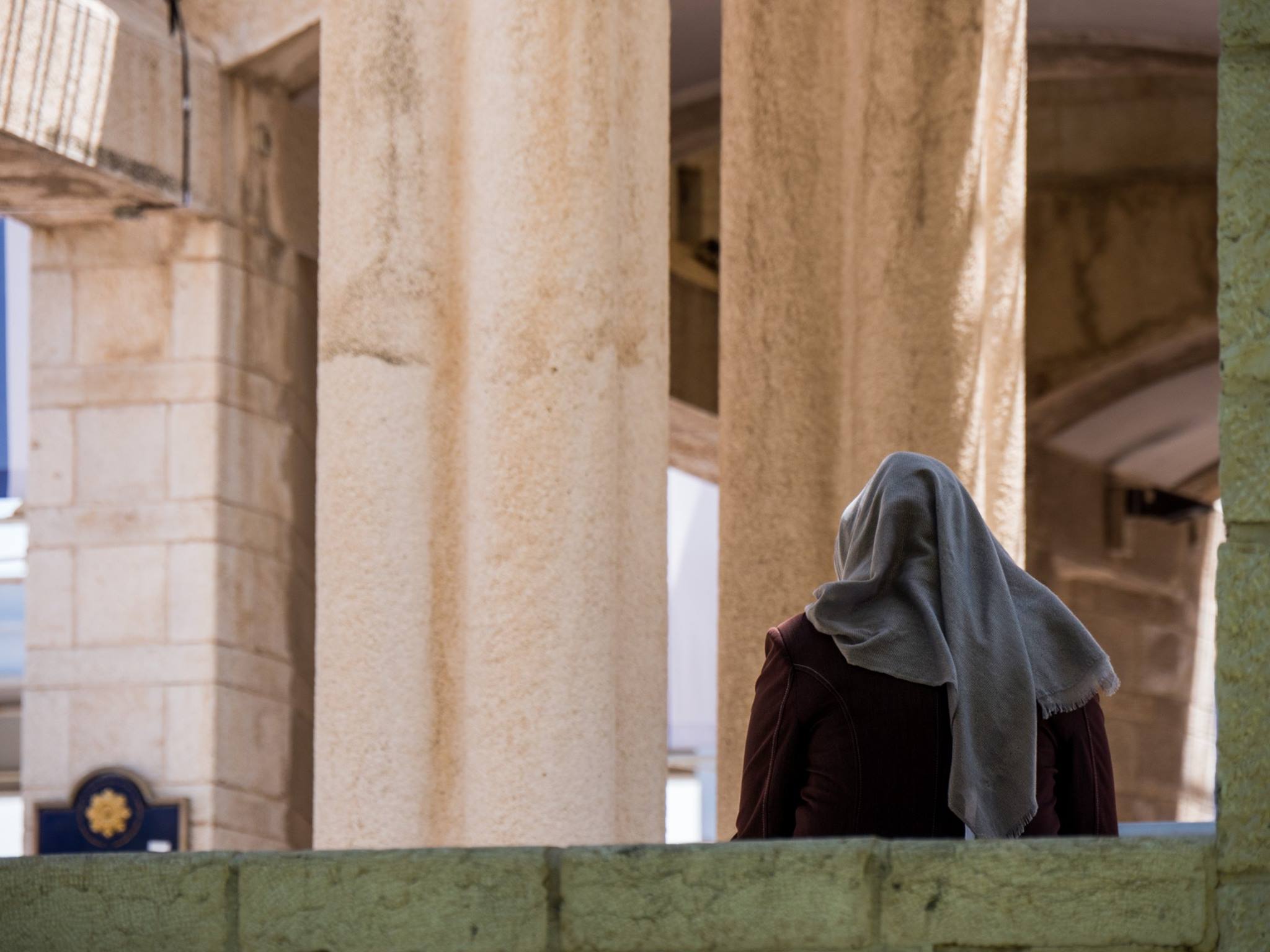
A monk in Jerusalem. Photo credit: © Dmitry Mishin
4. Water bottle - you can buy bottled water everywhere but if you want to save your money, then bring a water bottle. There are fountains everywhere, at which you can refill it. The water in Israel is safe to drink from the tap, so don’t worry about becoming ill.5. Suntan lotion and aftersun - again, this is widely available in Israel but more costly than in the US or Europe, so it’s a good idea to buy it beforehand. Temperatures will soar in the summer and it’s easy to burn - be careful and err on the side of caution by bringing the cream of a high factor.
6. Prescription medication - Israel’s clinics and hospitals are fantastic, but who wants to waste time visiting a doctor? Bring adequate supplies of your medication as well as a copy of your eye prescription (and a spare pair of glasses, if you use them).
7. Copies of travel insurance and documentation - it’s always worth having a paper copy as well as electronic (email) details. although hopefully it won’t be needed. You can always carry a copy of your passport on you too since it’s safer to leave your actual documentation at the hotel.
For a few more helpful hints, take a look at our article entitled ”What You Need to Pack for Your Next Trip to Israel”.
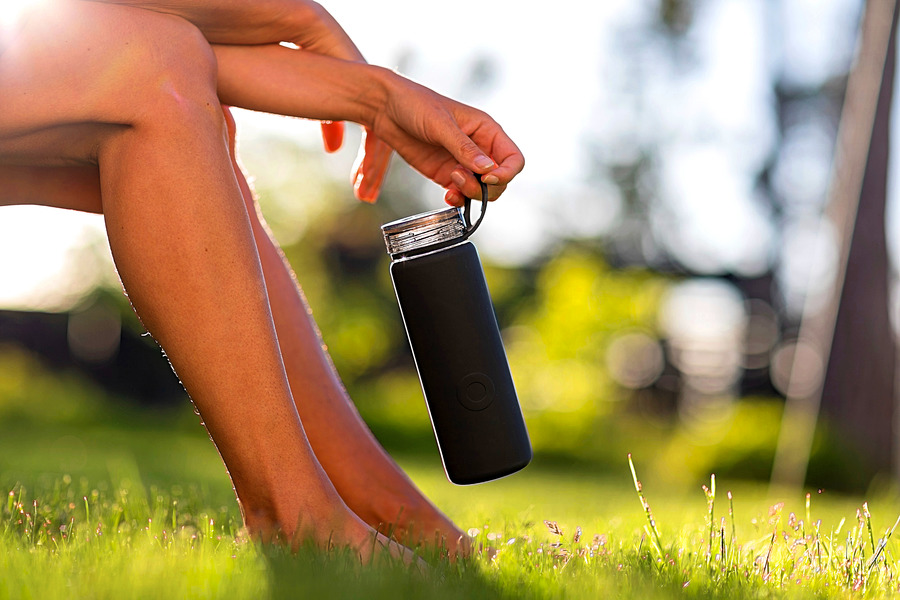
The person holding a water bottle. Photo by Bluewater Sweden on Unsplash
Should I change money before I arrive in Israel?
It’s not essential but often worthwhile to have a small amount of shekels on you when you touch down and changing money at Ben Gurion Airport is very costly!
Can I pay for purchases in Israel in dollars?
Israel’s national currency is the shekel and you’ll be paying for most things with it, but in some places (e.g. Jerusalem’s Old City bazaar and some restaurants and hotels) dollars can be used. The greenback is also welcome if you want to tip!
Is it easy to use credit cards in Israel?
There are ATMs everywhere in Israel if you want to withdraw cash, and the other good news is that almost everywhere now you can pay with a credit card. You’ll still need a bit of cash though, for local markets and buying ice cream from the guy on the beach! Israel is high-tech so it’s also becoming easier to use apps like ‘Apple Pay.’
Israel’s History and Culture
Israel has a rich cultural, religious and historical tradition that stretches back thousands of years. Jerusalem is sacred to 3 major world religions and when you throw the politics of the region into the mix, you have a topic that you can talk about for days.
Israel welcomes Christian pilgrims from across the globe, is home to a sizeable Muslim community and is also an epicentre of Jewish culture. Many of which you’ll encounter on a trip to Israel. Folklore, literature, art, music, not to mention the revival of the Hebrew language and the fact that the country absorbed millions of immigrants from across the world since 1948 all make Israel very special.
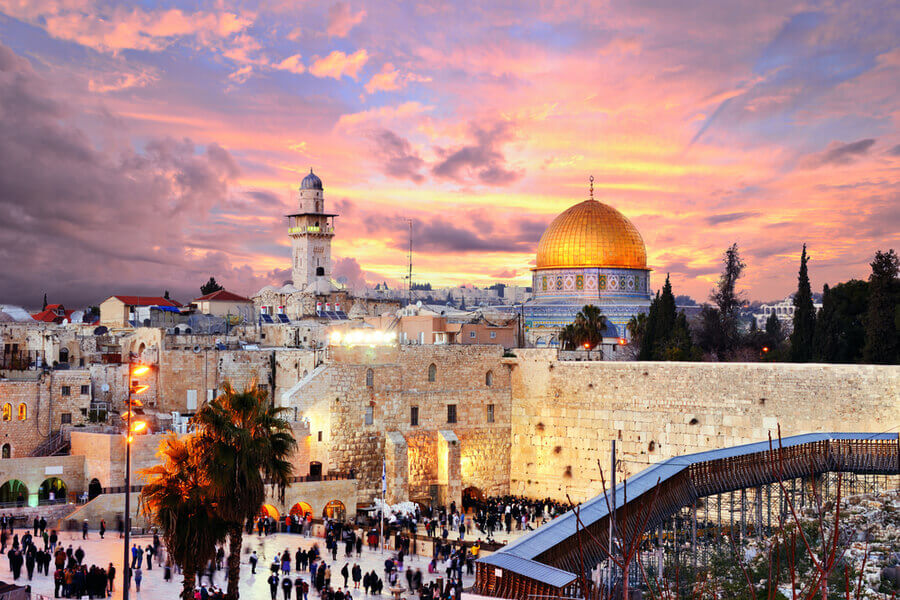
Jerusalem, the city of 3 religions. Photo credit: © Shutterstock
The Great Melting Pot
As a result, Israel’s culture is incredibly diverse - immigrants from Europe, North Africa, the Levant and North America amongst many have all brought their customs and traditions here, which is why the country is such an enormous melting pot. Israel is also a country of enormous contrasts - you only have to look at ultra-orthodox life in Jerusalem compared with the secular and liberal culture that exists in Tel Aviv, just an hour’s drive away.
It’s worth reading up a little before you travel - on the biblical history of the country, the archaeological sites in Israel, historical figures and political changes that the state went through - or even just delving into a novel by one of Israel’s modern writers, such as Amos Oz or David Grossman. There’s plenty of films by young directors too, including Eytan Fox’s ‘Walk on Water’ and the riveting TV series ‘Fauda’ which really give you an idea of the complexity of the country.
Also, be aware of religious sensibilities - Friday noon is when Muslims attend important prayers, Friday night to Saturday night is a Jewish rest day and on Sunday, Christians will be at church. For women, carrying a light shawl or shirt in your bag is a good idea, for visiting holy sites in Jerusalem.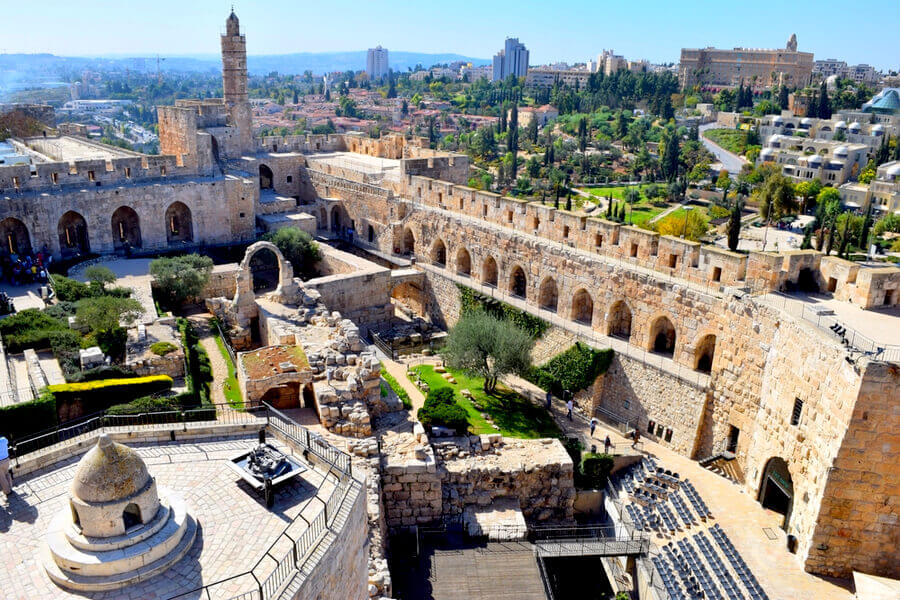
Tower of David Museum, Jerusalem. Photo credit: © Shutterstock
Holidays in Israel. Can I travel on Shabbat and religious holidays?
Shabbat - the Jewish day of rest - starts on Friday evening and runs for 25 hours - and most stores are closed during this time. Jerusalem comes to a standstill on Shabbat although in Tel Aviv many cafes and restaurants are open. There is no public transport in Israel on Shabbat - you can, however, take taxis.
Shabbat is taken seriously in Israel - religious people do not use electricity or work in any fashion and even secular people use it as a time to relax, catch up with friends and family or just spend some quality time with themselves. In a world where we’re so used to 24/7 conveniences, this can be strange at first - but, trust us, you’ll enjoy it after you’ve had a taste of it.
Religious Jewish holidays in Israel are also strictly observed - especially Yom Kippur (the Day of Atonement) when the country grinds to a halt (even Ben Gurion airport is closed). No one drives (the highways are deserted) and it is impossible to buy even a cup of coffee. Pick up a book in advance and enjoy some downtime!
Tipping. Should I tip and how much?
Tipping is not mandatory in Israel but definitely expected. Of course, it’s up to you but in general, give restaurant staff a 10-15% tip and if you’re travelling as part of a tour package, your guide will be thrilled with you tipping them. On day trips, you can tip according to how satisfied you are with the individual.
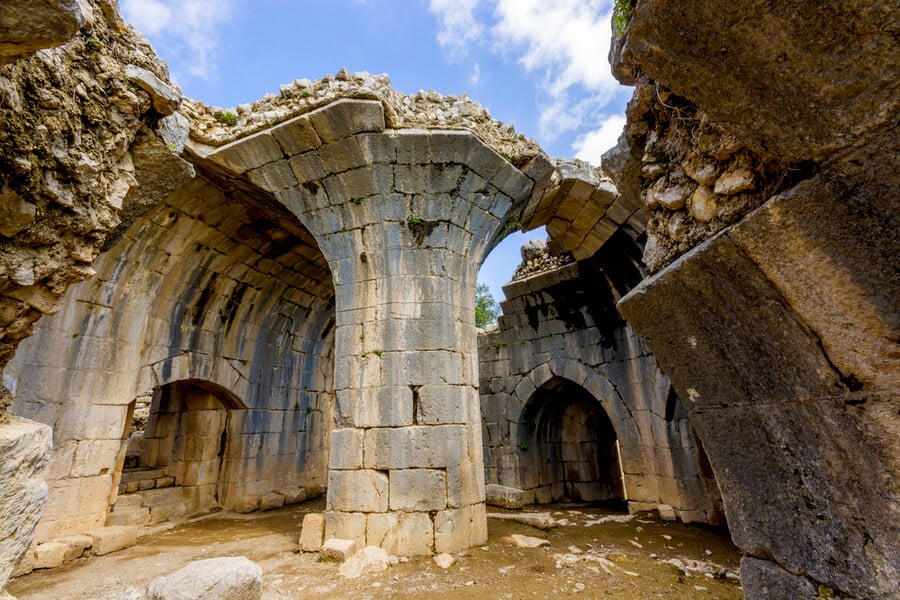
Ruins of Nimrod Castle, Golan Heights. Photo credit: © Shutterstock
Public Transport. Is it safe to use buses and trains?
Buses and trains are cheap, comfortable and efficient and whether you’re travelling independently, or taking a group tour in Israel, don’t be afraid to use them. Pick up a green Rav Kav card (widely available), charge it up with prepaid credit - especially if you have 48 hours free in Tel Aviv or a couple of days in Jerusalem, the buses or light rail are a great way to get around.
Please note, that you’ll probably see soldiers with guns in the street when you’re travelling. Don’t be afraid - everyone does military service in Israel and some entrances to train stations (and other public places) have guards and soldiers there for your security.
Tips for the Road. Any tips or hacks to make my trip go more smoothly?
1. Respect the local culture - remember that you are in the Middle East. Excessive drinking is frowned upon, whilst smoking is still widespread! In conservative Jerusalem, modest dress is expected whereas in Tel Aviv, anything goes. Learn a few Hebrew phrases beforehand - they aren’t obligatory but every local (and your guides) will love you for it.
2. Group travel - remember that pick-ups from other hotels (on day trips especially) might take 15-30 minutes. Nevertheless, we really recommend taking a tour package in Israel if you’re a senior - it’s more comfortable and convenient and you’ll be going at a reasonable group pace! It’s also safer - since you’ll have a group leader who knows the country well - and this gives you added peace of mind.
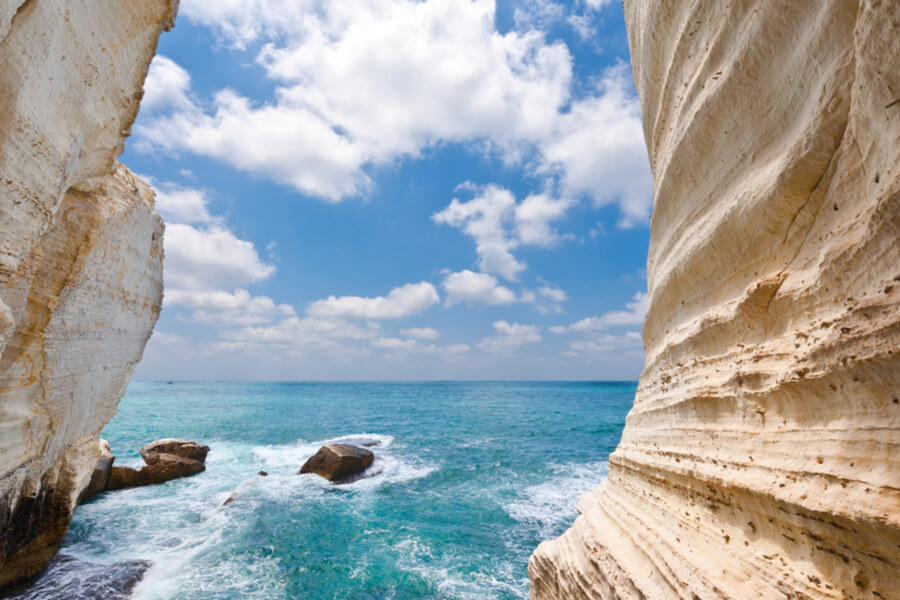
Rosh Hanikra Cliffs. Photo credit: © Shutterstock
3. Bed sizes - there are three common mattress sizes for couples in Israel - double beds are common, and there’s also Queens and Kings, for couples who like a little more space to move around at night!4. What’s good to eat? Try everything you can! Israel’s cuisine is eclectic and tasty. Chicken soup, schnitzel, herring and chopped liver are old European favourites. Shakshuka (poached eggs in a spicy tomato sauce), malawach (a thick Yemenite pancake) and Jachnun (another iconic Yeminite favourite) are great for breakfast. Mujadara and T’beet are Iraqi dishes using lentils and chicken respectively, and some visitors fall in love with Moroccan baked cod!
Salads are wonderful too - the local produce is to die for and always very fresh. In every food market, you’ll see olives, bread and spices for sale - be adventurous and try a little of everything. Bourekas (pastry filled with cheese or potato) are good to grab when you’re on the go and if you’ve got a sweet tooth don’t fear - between halva, babka and malabi, you’re going to be delighted.
Finally, there’s Israeli street food - falafel (fried chickpea balls) and sabich (egg, potato, salad and aubergine served with a mango sauce) are both served with pita bread and make the perfect snack. And how can we not mention hummus? This tasty dip, made with mashed chickpeas, lemon juice, garlic and tahini will win your heart.
5. How do I know when I’m ready to take the plunge? Well, take a look at our website, read up a bit and, for more advice, here’s our article on How to Plan Your Perfect Vacation in Israel. Good luck and see you soon!
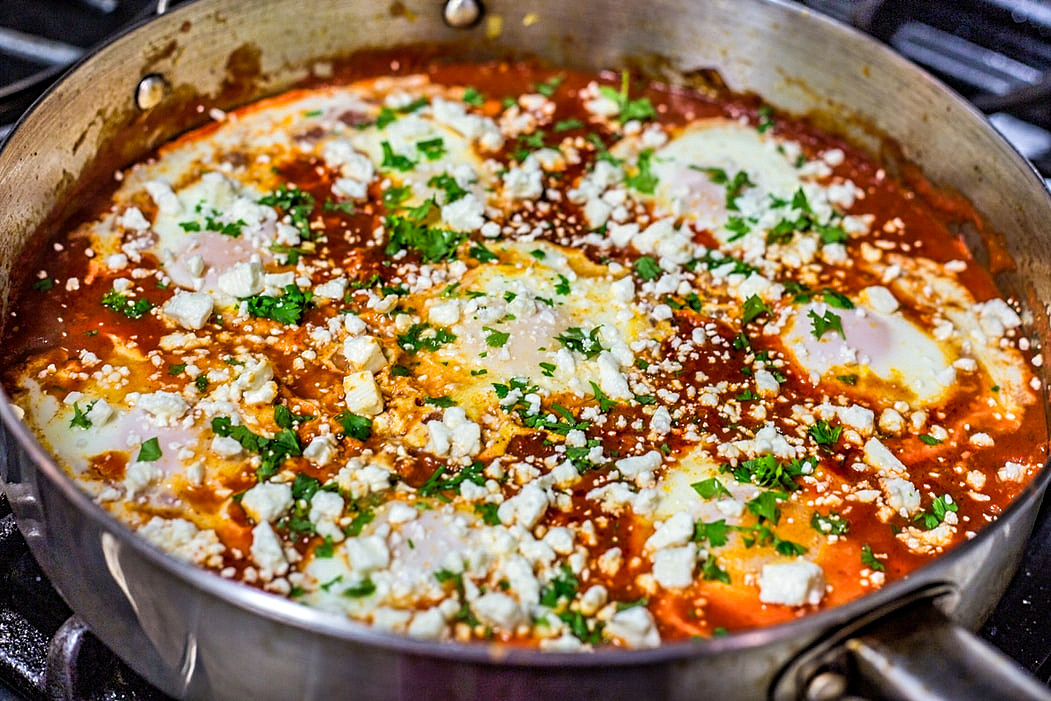
Shakshuka (Eggs Poached in Tomato Sauce). Photo by Delaney Van on Unsplash
 Login / Register
Login / Register
 Contact Us
Contact Us
 Certificate of Excellence
Certificate of Excellence Guaranteed Departure
Guaranteed Departure Low Prices Guaranteed
Low Prices Guaranteed 24/7 Support
24/7 Support




